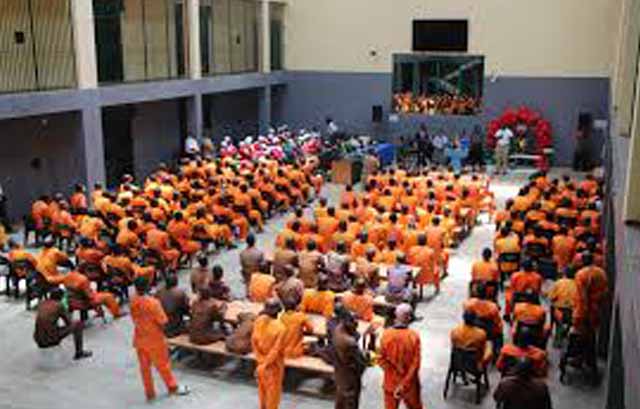By PHEPHISA KHOZA | 2024-10-06
I was excited by the world leaders’ decision to adopt a ‘Pact for the Future’ that includes a global digital compact and a declaration on future generations during the 79th United Nations General Assembly’s Summit of the Future last week.
The summit, which was the first-of-its-kind, aimed to address important issues ranging from peace and security to digital cooperation, to how member states finance their development goals and better deliver for the future.
The pact is a list of 56 pledges across five themes, in which world leaders promise, among other things, to provide more finance for low-income countries; work harder towards peace and security; mobilise science; and listen more to young people.
The UN Secretary-General, António Guterres, articulated it very clearly when he said world leaders “cannot create a future fit for our grandchildren with a system built by our grandparents.”
Unfortunately in as much as the UN is future-looking, my concern is that the pact despite being the anecdote to the many challenges facing most governments, it may end up on the shelves gathering dust in most governments.
Sadly, this is the reality of countries ratifying conventions and protocols. conducted According to the Global Strategy Lab research conducted last year, international treaties have mostly failed to produce their intended results and only treaties in the trade and finance policy area were the exception, exhibiting consistent evidence of positive results.
But that is an argument for another day. The UN secretary-general had me thinking about the irony in his statement, particularly because the decision-making in some countries are taken by people who do not hold the same vision and ideologies as the UN. Gerontocracy, a state governed by old leaders, has become increasingly prevalent in the present political landscape.
Just a decade ago, only India had a leader who was 70 or older. Today, however, most of the world’s populous and powerful nations are led by politicians in their 70s, 80s, and even 90s.
Even autocratic regimes have seen leaders like China’s Xi Jinping and Russia’s Vladimir Putin consolidate their power, defying conventional retirement ages, according to the Indian Express.
Take the United States, for instance, which is a charter member of the United Nations and one of five permanent members of the UN Security Council but at 78, presidential candidate Donald Trump is objectively speaking old. If he wins re-election next month, he will end his term just a few months shy of his 83rd birthday.
I will not get into his campaign but the New York Times has published a number of articles, questioning Trump’s ability to lead. In one of the articles, ‘Inside the Worst Three Weeks of Donald Trump’s 2024 Campaign” the New York Times wrote “People around the former and would-be president see a candidate knocked off his bearings, disoriented by his new contest with Kamala Harris and unsure of how to take her on.”
Unlike in another article where the publication declared that ‘Trump unfit to lead’ they described him as a candidate knocked of his bearing, disoriented…” which was what most people said about President Joe Biden, who at 81 is the oldest serving US president. Biden dropped out of the race, allowing Harris to run against Trump. At 59, Harris will become the first female US president.
This is not only in the US as the oldest president is in Africa. despite having many young leaders emerge in recent times, there are many who are old and have probably overstayed their term in office.
President Paul Biya of Cameroon (91) is the oldest and has been in power since 1982, making him one of the longest-serving leaders globally. Nangolo Mbumba of Namibia and Alassane Ouattara of Ivory Coast, who are both 82, and Teodoro Nguema Mbasogo of Equatorial Guinea and Emmerson Mnangagwa of Zimbabwe, both 81, make the list of the oldest African presidents.
This is not to suggest that they are bad leaders as President Ouattara is recognised for his contributions to the country’s recovery and growth. continue It is also not about leaders. It is about how senior citizens continue to cling on to their positions, denying the youth of an opportunity to grow and most importantly, have a say in the echelons of power.
This has implications for policy-making, particularly for young people. Traditionally, policy-making and important decisions within African governments tend to be skewed towards older African citizens, who often feel threatened by technological tools they do not fully understand.
Moreover, most remain unwilling to engage with or listen to those arguably most affected by public policy decisions and best placed to understand such technologies, the young people. While barriers for young people in African politics persist, there are other ways to engage them in public sector governance and to ensure they have pathways to become public service leaders now and in the future.
This is what the pact seeks to achieve, the youth’s voice in decision-making. After all it cannot be a pact for the future without youth involvement. MP Marwick Khumalo has challenged government to investigate the growing trend of government officers altering their dates of birth towards their retirement age.
MP Khumalo argued that an investigation would unearth how the public service is dominated by people who should have long retired and would create opportunities for younger, fresher and creative minds.
The concern of keeping over-aged people in office was also raised during the People’s Parliament and government must immediately ensure that this does not continue to happen. Government should not approach this with kid-gloves but should instead adopt former prime minister, Prince Bhekimphi’s no-nonsense approach as he would tell anybody who had an issue – ekhaya.
The decision that ‘out with the old and in with the new’ has sparked debate with some proponents, especially senior citizens arguing that they bring a level of maturity and wisdom, leading to more effective and efficient leadership.
They believe they are better equipped to navigate the intricacies of international diplomacy, economic policy, and social issues. Nobody is disputing the experience they have but the truth is that some of the senior citizens may be out of touch with the needs and aspirations of younger generations.
Their traditional mind-set and approach makes it difficult to connect with and address the concerns of the youth. In fact, one from the younger generation argued that it’s the same reason why older people should not have children, especially when they are above 50 and worse in their 60s because they cannot communicate with their children, who are more digitally inclined. Perhaps that is taking it a bit far but that’s the argument. Addressing the Summit, Global Digital Compact under the theme:
“Towards a common digital future: Strengthening inclusive innovation and cooperation to bride the digital divide,” Minister of ICT Savannah Maziya through the leadership of His Majesty the King, our view is that, we must all collaborate and use this critical time to chart a way that will not only develop all our economies but also ensure that we do so in a way that is fully inclusive and equitable." sustainable The minister said Eswatini was looking at working with the youth, ‘an integral part of our sustainable inclusiveness strategy, as they represent more than 60 per cent of our population.
We are also ensuring that, as we develop, we remain responsible custodians of our natural resources for future generations. We need to ensure that our population is not only appropriately skilled but continuously focused on data sovereignty and data safety. We invite our investors to be partners in strengthening our marginalised communities, such as women, youth and disabled.
“This is an opportunity to use the digital space as a great equaliser and allow us to be truly inclusive.” The civil service suffers from a reputation of having too much bureaucracy and red tape, making it far from the top career choice for most bright young professionals. But it is the most critical institution for the delivery of public services and the development and implementation of government policies.
Engaging and recruiting young people who show leadership qualities like honesty, integrity, and the capacity to accept and tackle challenges, is a crucial first step and this is the direction government must take.
To do so, leaders must become more accessible to young people, more responsive to their needs, and demonstrate full accountability and transparency in the execution of their jobs.This is a call for government to not only adopt the pact but should implement it.
share story
Post Your Comments Below
SOCCER- The Premier League of Eswatini (PLE) has extended their heartfelt wishes to all players, ...

In the true spirit of Christmas, His Majesty’s Correctional Services (HMCS) will allow rela...

The Kingdom’s leather industry is poised for significant growth as it embarks on a 17-day p...

SOCCER- Sihlangu Semnikati head coach Zdravko Logaruši? has declared his team’s dete...
All material © Swazi Observer. Material may not be published or reproduced in any form without prior written permission.
Design by Real Image Internet